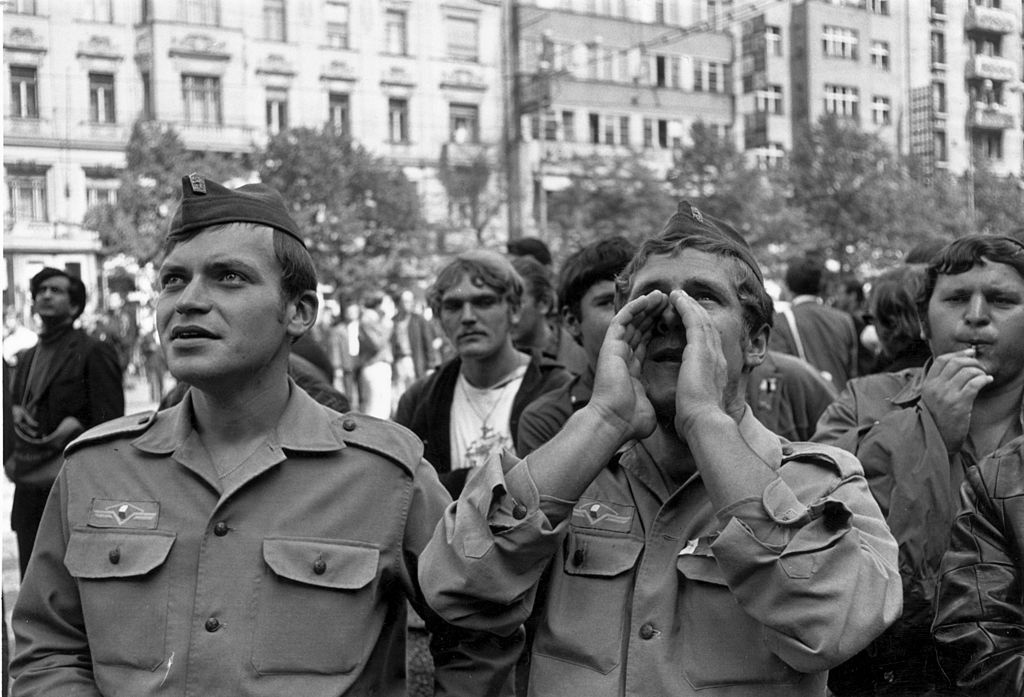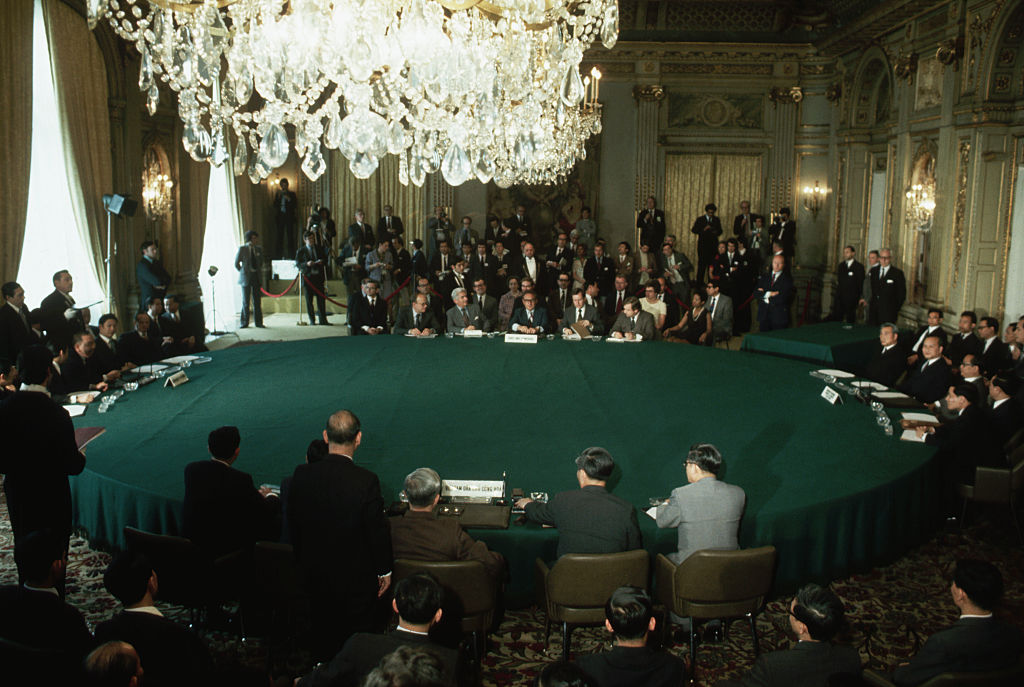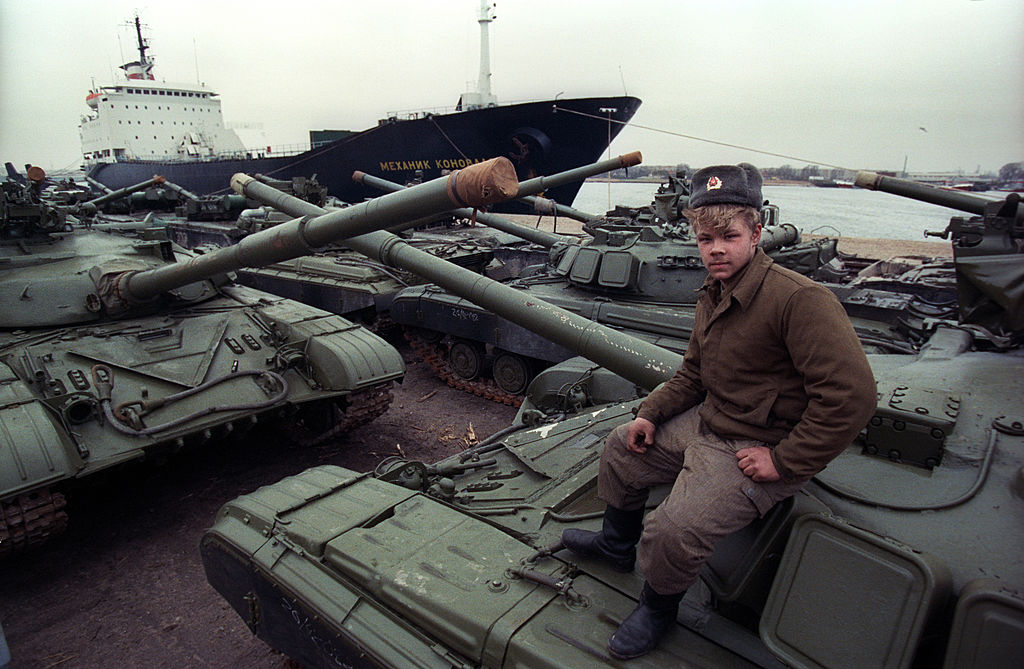For hardcore Eurofederalists the military question is foundational to their vision of a United States of Europe. Together with a unified monetary and fiscal system, a single “European Army” is a mandatory pre-condition for eradicating national sovereignty.
Even more than a single currency, control over tax and spend powers, or over the laws of the land – every land – sovereignty requires a state monopoly on military power within national borders. A federal Europe, to function as a fully integrated sovereign state, would eventually have to have its own armed forces – by subordinating national-level militaries.
But this kind of Eurofederalism is an extreme view, truly held and promoted only by a minority of decision-makers in the EU.
It is the middle-of-the-road but unimaginative pragmatists, backed by – unfortunately – the great mass of the confused, the naïve or the uninterested, who hold sway in Brussels and the chancelleries of Europe. The endless compromises needed to keep the EU show on the road, particularly against the rising tide of Eurosceptic populism, have debilitated the wider and older mission of making Europe an independent power-player on the world stage.
In these conditions an integrationist agenda can only advance under the guise of Europe as a “normative” and “soft” power. But is this enough to even secure Europe’s present advantages in an increasingly adverse and unforgiving global arena?
Europe is facing a perfect storm
Russia’s all-out war on Ukraine is a seismic event for Europe in particular, even though it will take some time for the shockwaves to fully strike home. With attention riveted on the immediate necessity of helping Ukraine, and little political profit in fully acknowledging the knock-on effects of the conflict, most political players in Europe are behaving as if it’s business as usual.
An urgent reappraisal of Europe’s situation is in order. Though the trend-lines across all key elements of power – from economics to technology, demographics or defence – have turned negative, decisive policy action may yet reverse them.
On the economic front, it is becoming increasingly clear that German industry is falling off a cliff, taking Europe’s growth prospects with it. Berlin cannot deal with a perfect storm of massive energy cost rises (caused by the war), an outdated economic model, the US-China trade wars, and a host of other domestic woes.
In technology, as previously detailed in these pages, Europe has also missed its chance to secure global leadership in key sectors for the future – from digital and AI to EVs or drones – even though it still produces cutting-edge research.
Nowhere is this dynamic more starkly displayed than in the space sector. Europe develops some of the most advanced space science & technology projects in the world, but struggles to scale up any capabilities or commercial ventures in order to compete against the companies or space programmes of the US or China.
Combined with demographic decline, these major headwinds are making Europe vulnerable to a degree not experienced since the end of the Cold War, and arguably since the Second World War. But the much more acute problem that overlays all these issues is Europe’s security deficit.
The security dimension
On the one hand, Europe is well protected from a conventional attack – which can only really come from Russia – by NATO. And the prospects of the alliance are positive: NATO will likely only grow stronger, regardless of what happens in Ukraine.
On the other hand, however, Europe is quickly becoming even more dependent on American military support than it already was before the war. This is especially true in high-end military technology like space, drones, long-range precision fires, not to mention nuclear.
The dream of European strategic “autonomy” is therefore receding further and further from view.
Strongly promoted by France, this was always an expensive proposition. A stable, well-run Europe at peace, on a confident trajectory to prosperity could hope to become a real pole of power in the international system. It surely would be able hold its own against the US or China and influence the shape of world order through other means than so-called “regulation”. This is not the scenario we’re in – but nor is everything lost yet.
The first step to true great power status, even before universal prosperity across one’s society, is the ability to control and secure one’s neighbourhood.
This is the original mistake, the fundamental flaw in Europe’s bid for global relevance: deciding to treat the question of security and stability in the European borderlands as a secondary issue, either left to NATO (as regards eastern affairs) or simply downgraded and never taken seriously (the Mediterranean area through to the Sahel).
Europe has no military instrument with which to act at scale to decisively solve any security issues in its extended neighbourhood. The recent coups in Niger and Gabon are certainly a challenge to French international standing and authority – but, by extension, also to that of Europe. They serve as a reminder of European impotence abroad.
A Joint Force Europe (JFE)?
This brings us back to the question of a European Army, with the important difference that the context is radically different.
This idea cannot be part of any Eurofederalist agenda now, and for the foreseeable future. But, the very basic principle of it, implemented with the required political caveats and safeguards, may provide the instrument and opening for Europe to return to a trajectory of real power and relevance in global affairs. It may also be essential for Europe’s geopolitical survival in the longer term.
In this vision, European countries – in their sovereign capacities, not as the EU – would draw up an ambitious plan for a new European defence arrangement, also open to full UK participation.
The end product would be a powerful, potentially UK-backed “Joint Force Europe”(JFE) – the “European (but not EU) Army” required to secure the European neighbourhood and act where NATO cannot/would not. This would be a high-intensity operations, not peacekeeping, force. It would function as an inter-governmental multilateral defence treaty technically outside EU structures.
JFE could build on the existing Anglo-French Combined Joint Expeditionary Force (CJEF), and take inspiration from the UK-led Joint Expeditionary Force (JEF) that links countries in northern Europe. There would be a clear understanding that, once established, the JFE could become involved in operations in Northern and Sub-Saharan Africa as required.
Despite the “southern” focus, the JFE’s remit would be “European security” writ large – on the clear condition of non-duplicating core NATO missions and deterrence capabilities.

In practical terms, a starting aim could be to build the JFE to the level of a warfighting division with full air and naval support. A country like Britain could commit to the JFE, on a permanent basis, a light brigade plus other support elements, as well as the key enablers (e.g. ISTAR, cyber, armed drones, air transport/refuelling etc) in which the Europeans are significantly deficient. Other countries, chiefly France and Italy, could provide similar contributions to make up the difference, especially in ground forces, plus other high-end capabilities such as space assets.
As regards UK’s political involvement, one approach to securing it would be to revive the spirit of the Anglo-French St Malo declaration of 1998 but without a direct link to the EU itself.
Instead, a “St Malo 2.0”, dedicated to securing Europe in general, could be thought of as an external support to EU. The key principle agreed in the St Malo declaration was that “the Union must have the capacity for autonomous action, backed up by credible military forces, the means to decide to use them, and a readiness to do so, in order to respond to international crises.” A “JFE concept” would offer a way to build that capacity outside the EU and supply it to the Union on a partnership/treaty-basis.
It would be essential for this JFE Treaty to include binding obligations on its members to take military action when certain conditions are met. The aspiration would be to devise a sort of “Article 5 for non-Article 5 situations”, including things like mitigating the risk of instability in European neighbourhood countries etc.
Defining the exact relationship between JFE, EU, and NATO would take considerable efforts and plenty of political good will. The new European Political Community (EPC) framework can perhaps function as the convening forum for these negotiations. Varying degrees of cooperation/integration with EU can be imagined, and the old WEU model could be a starting point.
A future “JFE Treaty” (the first Western defence pact since the 1940s) could even break new ground in dealing with many of the legal, political and operational dilemmas thrown up by 21st-century forms of warfare and threats, by establishing new norms in international law. For example, the treaty could start providing answers to some of the questions arising out of “hybrid warfare” – including in new domains like space – the limits of the applicability of International Human Rights Law in non-state conflicts, or the future of “Responsibility to Protect”.
Clearly, at a time of bloody inter-state war on the European continent, and after the Afghan debacle, there is little political appetite or interest in contemplating future interventions or stabilisation operations, let alone counter-insurgency campaigns.
Yet such security risks cannot be wished away; if anything the competition for power and resources in poor and unstable countries in places like Africa will only intensify. Terrorist organisations like ISIS are not just active still, but are indeed resurgent including in African countries. Prudent security policy must therefore look to future risks not only immediate crises such as Ukraine.
One other advantage of a potential Joint Force Europe is that, as a completely new structure unrelated to the EU, it would be free of the Greco-Turkish complications that have dogged European defence questions in the past. In fact, it would be a particularly important feature of JFE that it would open new possibilities for Western policy towards Turkey, a NATO member which has been abusing its privileges partly because of a lack of an alternative military instrument in Europe that could be leveraged against its interests.
In this sense, the JFE could perhaps be conceived as a “mini-NATO for the Mediterranean”, but without Turkey and with Britain rather than America as the driving force.
Finally, a JFE would be a demonstration of European resolve to arrest its decline in the global geostrategic landscape, refresh the continent’s ambitions, and recover some of its older traditions of realism in the conduct of international and security policy. A JFE-type structure should not be an “EU army” or an instrument to advance “European integration” – but a tool of geopolitical survival for the “Old World” as a whole.
The need for solutions
The idea for something like a Joint Force Europe is undoubtedly next to impossible to achieve for a host of reasons in the current climate – reasons to do with both politics, politicians and also the poor state of the intellectual debate (and its ideological blinkers) on Europe’s fate in the years to come. But it is useful as an investigation of potential courses of action and policy options.
A JFE would be a great leap of imagination, but so was St Malo (though to a lesser extent), while the post-1945 exercises in world-making were also great leaps towards completely new structures and concepts.
In other words, it is time for radical thinking in terms of new institutions and bold concepts required to not only cross the current impasse, but to emerge, as a collective of Western allies, stronger and more united. Like in the postwar era – or, in the case of Britain, after Suez – there is no “restoration” to be achieved, no “mending” of old strategies: there can only be new formats, new operative concepts for our continued values.
The bottom line is that, for Europe, the music has stopped. It is time to think about practical solutions – indeed, perhaps even those of a more radical kind – that can secure our joint future in an unforgiving world.
Gabriel Elefteriu is deputy director at the Council on Geostrategy in London and a fellow at the Yorktown Institute in Washington, D.C.






Europe’s strategic future is now inextricably tied to the Indo-Pacific